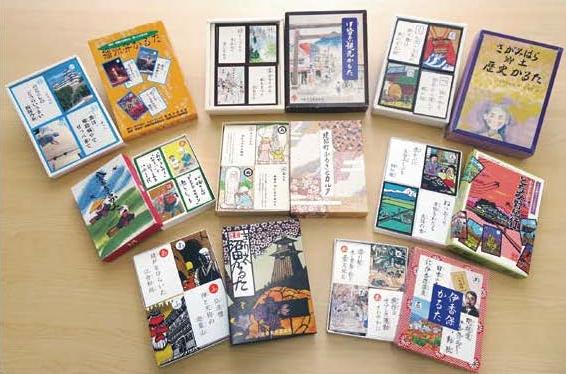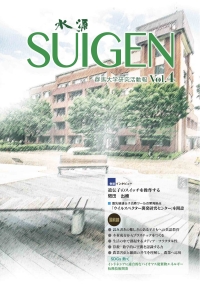


It has long been known that genes have on/off
switches, but the research on their mechanisms has recently become
more active. Professor Izuhiko Hatada and his research team have
successfully developed a technology using genome editing
techniques to turn on targeted gene switches selectively. This
research has gained worldwide attention.

Biosignal Genome Resource Center
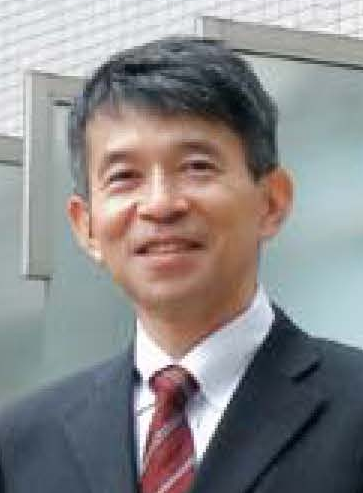
Gunma University established the "Initiative for Advanced Research Viral Vector Core" within the Initiative for Advanced Research on October 1, 2019, with Professor Hirokazu Hirai as the center director. Professor Hirai's laboratory in the Graduate School of Medicine at Gunma University has been researching efficient gene delivery into neural cells of the brain and nervous system using adeno-associated viruses. Their research achievements include being selected for the "Comprehensive Understanding of Brain Function Network through Innovative Technology Project" by the Japan Agency for Medical Research and Development (AMED) in 2014 and 2017, positioning their research as part of a national project for unravelling brain function. Building upon their previous research accomplishments, the new center aims to develop virus vectors, rapidly gaining popularity in life science research and gene therapy.


"Dyslexia" is more easily manifested in English than in Japanese because of the complex relationship between letters and sounds. English education in Japan has undergone significant changes starting from the 2020 academic year. Currently, fifth and sixth graders in public elementary schools engage in English activities once a week, playing games and singing songs in English as part of their "foreign language activities." However, starting the next academic year, English will be introduced as a subject for fifth and sixth graders, while foreign language activities aimed at familiarizing students with English will be conducted in the third and fourth grades. This means that dyslexia, which neither the individual nor those around them may have noticed, will start to become apparent at an earlier stage. Associate Professor Mutsumi Iijima has been researching the issue of "reading and writing disabilities" in English education for about 20 years. She has been engaged in activities to deepen the understanding of elementary and middle school teachers. She is at the forefront of this topic. She holds a passionate belief in "leaving no one behind" and is very enthusiastic.
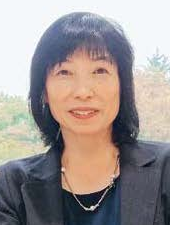
Yukari Ota, a lecturer at the Center for Food Science and Wellness, explores the hidden power of bacteria in the deep sea and their enzymes and aims to generate useful applications. The origin of her studying deep-sea bacteria is her previous position, as a researcher at the Japan Agency for Marine-Earth Science and Technology. Organisms living under harsh conditions where sunlight doesn't reach are believed to possess different functionalities from those in the abundant biosphere on the Earth's surface. She is working on a research project that utilizes enzymes discovered from the deep sea to produce substances from wood components as an alternative to petroleum-based chemical materials. Amid the global issue of plastic waste flowing into the ocean, she has joined a new project to create marine biodegradable plastics. She takes on challenges related to regional food and health issues and expands her network with her inherent charm.

We are now in an era where it is possible to quantitatively understand the movements of society by utilizing big data. Assistant Professor Yasuko Kawabata is analyzing the data with a perspective from social physics, considering the Ultra-Smart Society's realization (Society 5.0). She is exploring two main aspects. First, she is studying the flow of people within society. Second, she analyzes the temporal and spatial distribution of people's interests, concerns, and opinions. She is an emerging researcher in this new era who has been accumulating achievements at a remarkable pace and gaining attention.
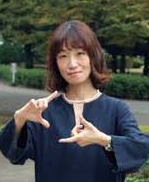
Associate Professor Maiko Sawada pursued her
studies in mathematics at Tsuda University and completed her
master's degree. She received guidance from Professor Shunsuke
Funakoshi at Kobe University to delve deeper into "mathematical
cognition." "Mathematical cognition" is a research field that
seeks to unravel how numbers, equations, geometric shapes,
statistics, and other mathematical concepts are understood,
incorporating insights from psychology and neuroscience. At Kobe
University, she started another master's program. However, towards
the end of her graduate studies, she felt a significant gap
between research and the educational field in primary and
secondary schools. Therefore, after obtaining her doctorate, she
became a mathematics teacher at junior high and high schools in
Hyogo Prefecture. In 2012, she transitioned to become a
researcher, working at Kobe University and Tokushima University
before joining Gunma University in the spring of 2018. Throughout
her career, she has consistently focused on geometry as her theme.
She is guiding students and working tirelessly to bridge the gap
between cutting-edge research and the realities of primary and
secondary school education.
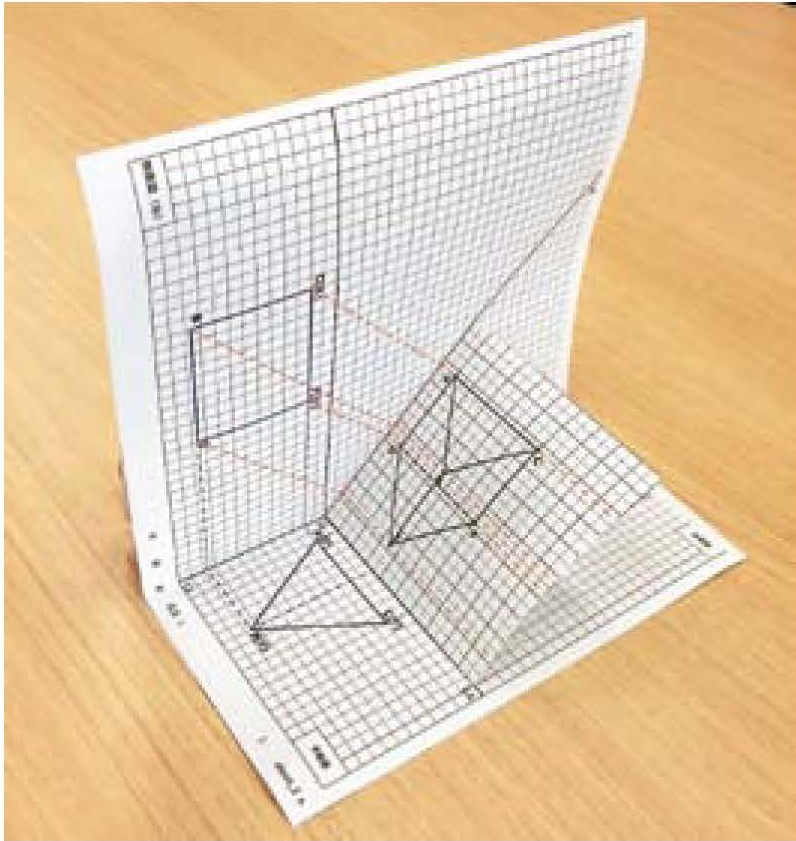
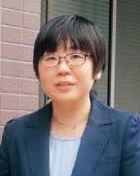
The tobacco whitefly is feared worldwide as a pest that causes significant damage to agriculture. It possesses a specialized organ for hosting symbiotic bacteria; without the nutrients produced by these bacteria, the tobacco whitefly cannot survive. Akiho Fujiwara, a lecturer at the Center for Food and Health Science Education and Research, is studying this symbiotic mechanism. She believes that it may be possible to establish effective and safe agricultural pest control methods by elucidating the mechanism and developing methods to inhibit symbiosis.
When promoting projects for converting biomass into energy, the choice of technologies to develop and implement depends heavily on the conditions of the target region. In developing countries, equipment and catalyst costs tend to be relatively high. For example, even if the catalytic performance is slightly lower, utilizing a lower-cost catalyst would be economically advantageous. Developing technologies from the perspective of "appropriate technology" like this can facilitate the introduction of new technologies in developing countries and contribute to achieving the Sustainable Development Goals (SDGs).
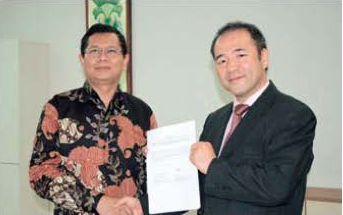
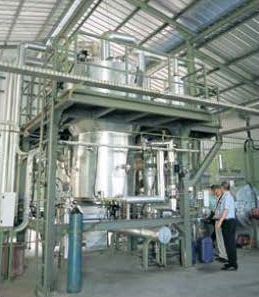
The "Local Karuta Cards Collection" preserved at the Library and Information Technology Center, Gunma University, consists of over 270 types of karuta cards, including those generously donated by Mr. Yukio Yamaguchi, Chairman of the NPO Japan Local Karuta Association, and Ms. Mikiko Haraguchi, Vice Chairman of the same association, as well as donations from individuals and local municipalities.
Within the collection, there are more than 70 types of karuta cards related to Gunma Prefecture, including the "Jōmō Karuta: local karuta cards in Gunma" series, and over 200 types of karuta cards from various regions throughout Japan, ranging from Hokkaido to Kyushu, showcasing the rich regional diversity. The collection has been praised as the largest of its kind in Japan.
During the late 2017 to early 2018, the
Library hosted the "Exhibition of Japan's Largest Karuta
Collection," which received positive feedback, with visitors
coming from outside the prefecture. The Local Karuta Collection is
stored in a special materials room, but if you inquire with the
library in advance, you can have the opportunity to view the
actual cards.
